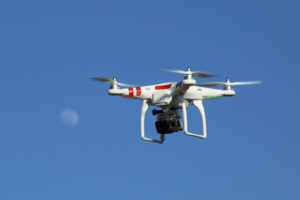Hot Weather Tips
Summer officially starts on June 21, 2017 and the heat and humidity can present some very unique challenges. The following tips are provided in an effort to assist our residents and visitors who may not be familiar with how to prepare themselves (and their pets) for extremely hot/humid weather. We can never be too careful, too prepared or too aware, so please share this information with family, friends and neighbors.
The best defense is prevention. Here are some prevention tips:
- Drink more fluids (nonalcoholic), regardless of your activity level. Don’t wait until you’re thirsty to drink. Warning: If your doctor generally limits the amount of fluid you drink or has you on water pills, ask how much you should drink while the weather is hot.
- Don’t drink liquids that contain alcohol or large amounts of sugar; these actually cause you to lose more body fluid. Also, avoid very cold drinks, because they can cause stomach cramps.
- Stay indoors and, if at all possible, stay in an air-conditioned place. If your home does not have air conditioning, go to the shopping mall or public library–even a few hours spent in air conditioning can help your body stay cooler when you go back into the heat.
- Electric fans may provide comfort, but when the temperature is in the high 90s, fans will not prevent heat-related illness. Taking a cool shower or bath, or moving to an air-conditioned place is a much better way to cool off.
- Wear lightweight, light-colored, loose-fitting clothing.
- NEVER leave anyone or an animal in a closed, parked vehicle.
- Visit adults-at-risk at least twice a day and watch them closely for signs of heat exhaustion or heat stroke. Infants and young children, of course, need much more frequent watching.
- Although anyone at any time can suffer from heat-related illness, some people are at greater risk than others. Check regularly on:
-
- Infants and young children
- People aged 65 or older
- People who have a mental illness
- Those who are physically ill, especially with heart disease or high blood pressure
If you must be out in the heat:
- Limit your outdoor activity to morning and evening hours.
- Cut down on exercise. If you must exercise, drink two (2) to four (4) glasses of cool, nonalcoholic fluids each hour. A sports beverage can replace the salt and minerals you lose in sweat. Warning: If you are on a low-salt diet, talk with your doctor before drinking a sports beverage. Remember the warning in the first tip (above), too.
- Rest often in shady areas.
- Protect yourself from the sun by wearing a wide-brimmed hat (also keeps you cooler) and sunglasses and use sunscreen of SPF 15 or higher (the most effective products say “broad spectrum” or “UVA/UVB protection” on their labels).
Tips for pets & companion animals;
Visit the Vet: A visit to the veterinarian for a spring or early summer check-up is a must. Make sure your pets get tested for heartworm if they aren’t on year-round preventive medication. Do parasites bug your animal companions? Ask your doctor to recommend a safe flea and tick control program.
Made in the Shade: Pets can dehydrate quickly, so give them plenty of fresh, clean water when it’s hot outdoors. Make sure your pets have a shady place to get out of the sun, be careful not to over-exercise them, and keep them indoors when it’s extremely hot.
Know the Warning Signs: Symptoms of overheating in pets include excessive panting or difficulty breathing, increased heart and respiratory rate, drooling, mild weakness, stupor or even collapse. They can also include seizures, bloody diarrhea and vomit along with an elevated body temperature of over 104 degrees. Animals with flat faces, like Pugs and Persian cats, are more susceptible to heat stroke since they cannot pant as effectively. These pets, along with the elderly, the overweight, and those with heart or lung diseases, should be kept cool in air-conditioned rooms as much as possible.
Additional hot weather safety tips can be accessed at the following links;
https://www.cdc.gov/disasters/extremeheat/heattips.html
http://www.aspca.org/pet-care/hot-weather-tips
[pdf-embedder url=”https://www.fbpd.org/wp-content/uploads/2017/06/beready_extreme_heat.pdf”]





